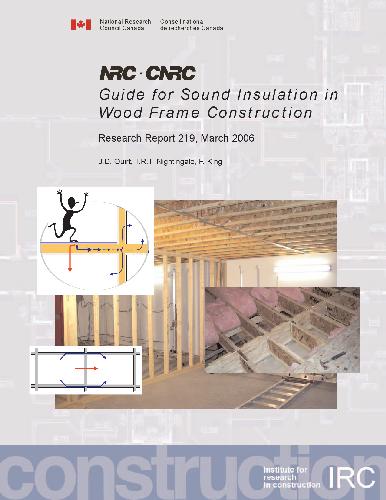

Most ebook files are in PDF format, so you can easily read them using various software such as Foxit Reader or directly on the Google Chrome browser.
Some ebook files are released by publishers in other formats such as .awz, .mobi, .epub, .fb2, etc. You may need to install specific software to read these formats on mobile/PC, such as Calibre.
Please read the tutorial at this link: https://ebookbell.com/faq
We offer FREE conversion to the popular formats you request; however, this may take some time. Therefore, right after payment, please email us, and we will try to provide the service as quickly as possible.
For some exceptional file formats or broken links (if any), please refrain from opening any disputes. Instead, email us first, and we will try to assist within a maximum of 6 hours.
EbookBell Team

0.0
0 reviewsIRC RR-219: Guide for Sound Insulation in Wood Frame Construction March 2006
This Guide addresses flanking transmission of sound through wood framedconstruction. Continuous structural elements and connections at the junctions of
partition walls and floors provide transmission paths that by-pass the separating
partition between two noise-sensitive spaces.
Flanking transmission is sound transmission between two rooms by paths other
than directly through the nominally separating wall or floor assembly. Flanking
exists in all buildings and its importance in determining the apparent sound
insulation (that perceived by the occupants) depends on of the construction
details of the walls, the floors and their junctions.
This Guide is the derivative of four industry-sponsored research projects
conducted at IRC/NRC. The focus and construction details were decided by a
Steering Committee of technical representatives from each of the supporting
partners. Partners included Canada Mortgage and Housing Corporation,
Forintek Canada Corporation, Marriott International, National Research Council
Canada, Owens Corning, Trus Joist, and USG.
This Guide supersedes the version published in 2005. This version includes
estimates of the flanking due to directly attached gypsum board on ceilings,
corridor walls, and exterior walls. (The first version assumed that these surfaces
were mounted on resilient channels, and thus had negligible effect.)